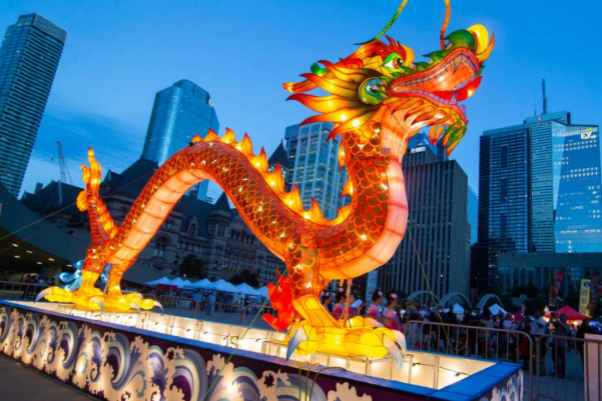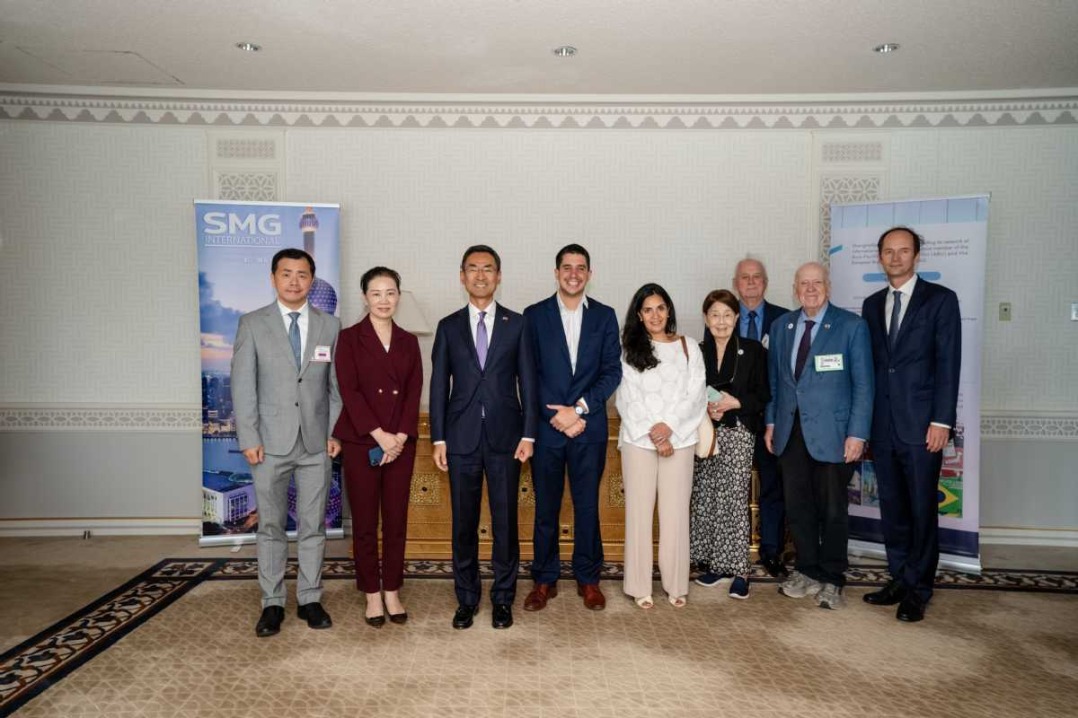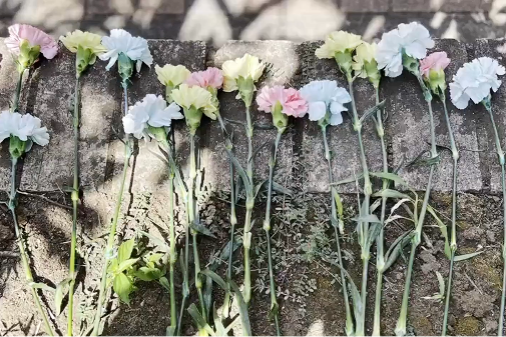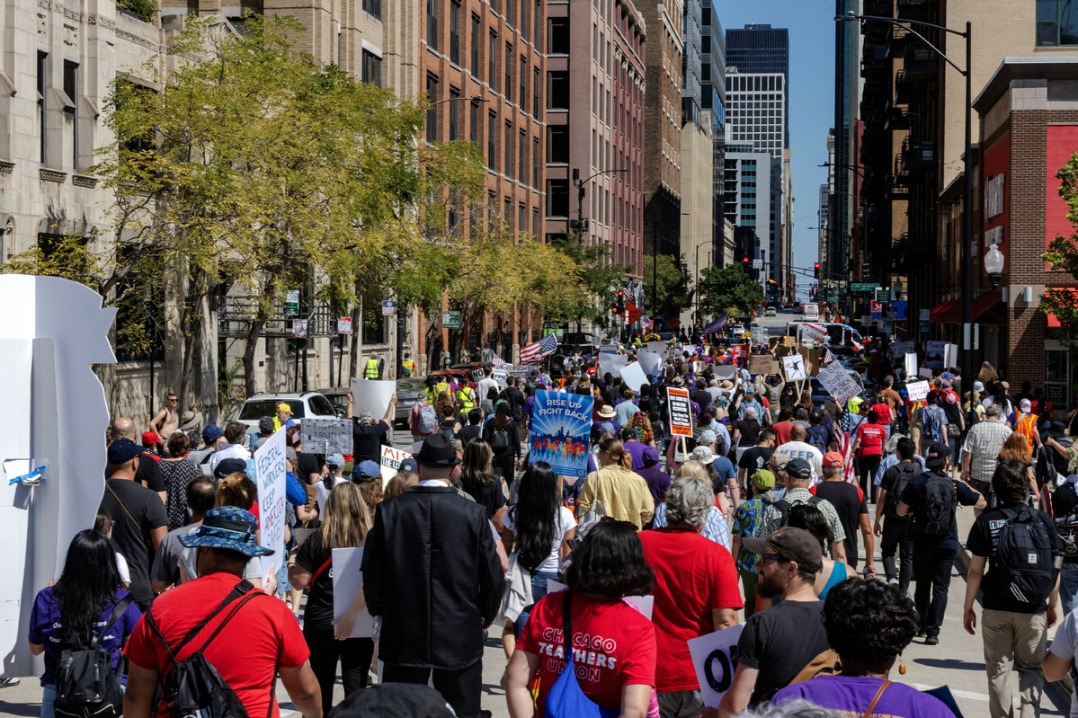Toronto Dragon Festival highlights Chinese traditions, multicultural spirit

The sixth Toronto Dragon Festival drew thousands of visitors to Nathan Phillips Square in Toronto, Ontario over the weekend, offering a celebration of Chinese traditions while embracing Canada's multicultural identity.
At the opening ceremony, political leaders from China and Canada, community representatives and business delegates gathered.
Luo Weidong, China's consul general in Toronto, said the dragon festival has become one of the city's most influential multicultural celebrations, loved by the Chinese community and attracting wide participation from other ethnic groups.
Marking the 55th anniversary of diplomatic ties between China and Canada, Luo expressed hope that the festival would continue to serve as a bridge for people-to-people exchanges.
The event, which ran from Aug 29 to 31, has grown since its founding in 2018 into what organizer Zhang Jian calls "a platform for spreading Chinese culture."
"We Chinese should not just entertain ourselves," Zhang Jian told China Daily. "We want our culture to enter the mainstream, so audiences here can hear the voices of Chinese people, see the image of Chinese people, and experience our culture and art."
Zhang Jian first conceived the idea in 2017, during Canada's 150th anniversary, when his group staged a large outdoor performance.
Encouraged by the response, he and his team launched the festival the following year. Since then, it has featured dragon dances, martial arts, traditional costumes and interactive performances.
He said the goal has always been to create something distinct. "Compared with other festivals, ours is truly comprehensive.
"It is inclusive, systematic and shows not only Chinese traditions but also other cultures. That is why the city places us alongside events like Caribana," Zhang Jian said.
This year's lineup also included performances by Filipino, Korean, Russian and Ukrainian groups, underscoring the event's commitment to diversity. "Our Chinese culture is inclusive," Zhang Jian said. "We embrace other cultures, and they embrace us in return."
Visitor Hu Xi told China Daily the programs are enjoyable every year and that the festival carries special meaning.
"For families with children, it is especially valuable," she said. "Most kids here only see traditional Chinese culture on television or the computer, so bringing them to watch in person is also a way to immerse them in Chinese culture."
The festival's performances were rich and diverse, featuring traditional Chinese music, folk dances, Peking and Yue opera, and showcasing hanfu — traditional style clothing.
"The highlight of our festival is three consecutive days of continuous performances on the main stage," said Zhang Wei, the festival's artistic director.
"Every year the program is different. This year we introduced elements such as cosplay from the popular Chinese game Black Myth: Wukong and added shows like animal acrobatics," he told China Daily.
Zhang emphasized that the goal is not only to "inherit and pass on Chinese traditions" but also to create a platform for exchange.
The program mixed community performances with carefully selected high-quality acts, ranging from classical dance to contemporary reinterpretations.
"We know Chinese culture is long and diverse," Zhang said. "From ancient to modern, from classical to popular, we want to present a full picture."
He noted that the festival's rising profile mirrors China's growing global influence.
"As our motherland grows stronger, our sense of national pride also increases," Zhang said. "That gives us a responsibility to spread and promote Chinese culture."
Looking ahead, he said the priority is to deepen engagement with Canadian audiences.
"Our opportunity to be at a landmark like Nathan Phillips Square is very rare," Zhang said.
"In the future, we want to expand our influence, reach mainstream society more deeply, and attract more people to experience Chinese culture together," he said.
Like many cultural events, the festival faces financial pressures.
"The most important issue is economic," Zhang Wei said.
"We must work harder to secure more support to make the festival even better," he said.
gaoyang@chinadailyusa.com

































